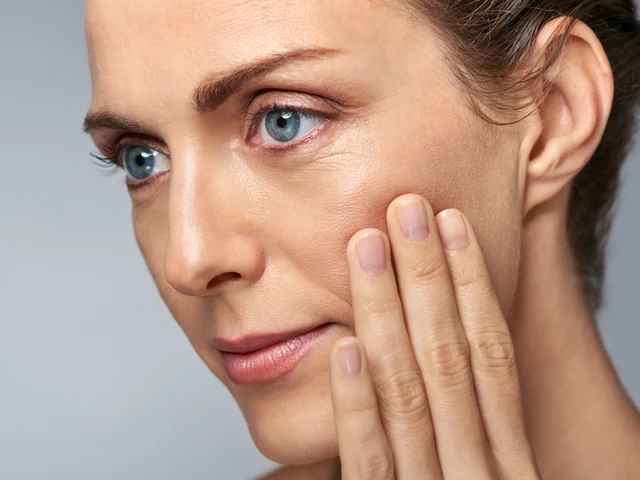
What is Skin Aging? How Can Skin Aging Be Prevented?
Skin aging is a natural process that occurs as a result of the gradual decrease in the rate of skin cell renewal and exposure to environmental factors over time. Factors such as harmful UV rays from the sun, smoking, polluted air, and unhealthy diet can accelerate skin aging.
Disturbing symptoms (i.e. wrinkles, spots, sagging, and uneven skin tone) can occur due to environmental and genetic factors. The slowing down of cell renewal, the decrease in collagen and elastin proteins, and the decrease in hyaluronic acid, which provides moisture, are the main causes of aging skin. These processes occur due to damage to the skin cells’ and tissues’ natural anti-aging and antioxidant mechanisms.
What are the factors that accelerate skin aging?
Although the factors that cause skin aging can vary from person to person, the usual suspects which are responsible for 90+% of all cases can be listed as follows:
- Exposure to environmental pollution
- Smoking and alcohol consumption
- Sleep disorders
- Sudden weight loss
- Loss of skin proteins
- Stress
- Dehydration (water loss)
- Unbalanced diet
- Exposure to sunlight
What are the signs of skin aging?
The signs of skin aging can generally be listed as easily visible symptoms as follows:
1- Darkening of skin spots
A decrease in melanocytes, which are color pigments, and the effects of UVA and UVB rays on the skin over the years can cause dark spots. Spots that become more noticeable in middle age are particularly observed on the arms, neck, décolleté, face, and hands.
2- Wrinkles and fine lines
Intensive use of facial expressions, especially around the eyes and lips, can lead to the gradual loss of muscle tone, resulting in fine lines. Fine lines around the eyes may deepen, forming the wrinkles known as crow’s feet.
3- Loss of skin firmness
By the end of 20s, the slowing of collagen production causes the skin to lose its elasticity and firmness, primarily on the face and hands.
4- Dry skin
The thinning of the skin over time and the loss of moisture cause the skin to dry out and sometimes become itchy.
5- Enlarged pores
Pores, which allow the skin to breathe and receive nutrients, have a certain elasticity, helping the skin appear more taut. If pores lose their elasticity, primarily due to improper care, they enlarge, leading to more frequent blackheads and acne problems.
6- Thinning skin structure
When new cell production slows down in the body, thinning of the epidermis layer of the skin may be observed. As a result, wrinkling and sagging of the skin may increase over time.
When do signs of skin aging become visible?
Depending on genetic factors and external influences, signs of aging can appear at any age, but they typically begin to manifest as fine lines in the late 20s. In women, the reduction of fat tissue and the loss of fibers such as collagen and elastin can accelerate the process. Not getting the minerals, vitamins, proteins, and essential oils your body needs, plus bad habits like drinking and smoking, can speed up the process.
How can skin aging be prevented?
Proper nutrition, detoxification, external protection, support, and cleansing of the skin are very important. Daily use of SPF 50 sunscreen and moisturizing products is effective in preventing premature skin aging. Cosmetic products containing hyaluronic acid, vitamin C, and collagen can be of great benefit.
Skin aging can be delayed with some practical methods, which can be listed as follows:
- Paying attention to daily body care and skin cleansing
- Maintaining the skin’s moisture level and paying attention to daily water consumption
- Avoiding stress and bad habits
- Avoiding exposure to chemicals and low quality make-up products
- Using sunscreen all year round
- Eating a balanced diet and exercising
Are there certain foods that delay skin aging?
Water: It is important to drink enough water daily according to your body weight index to maintain the skin’s moisture balance.
Apples: With their fiber content and antioxidant properties, apples help the body retain water and eliminate free radicals.
Carrots: Rich in vitamins A, E, and C, carrots help give the skin a healthy glow and vitality.
Protein intake: Supporting the synthesis of collagen and elastin proteins helps maintain a youthful appearance.
Natural oils: Rich in omega-3, omega-6, and omega-9 fatty acids, plant oils help maintain the skin’s oil balance and prevent dryness.



